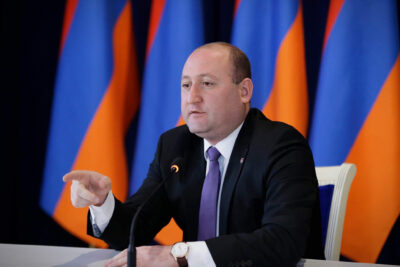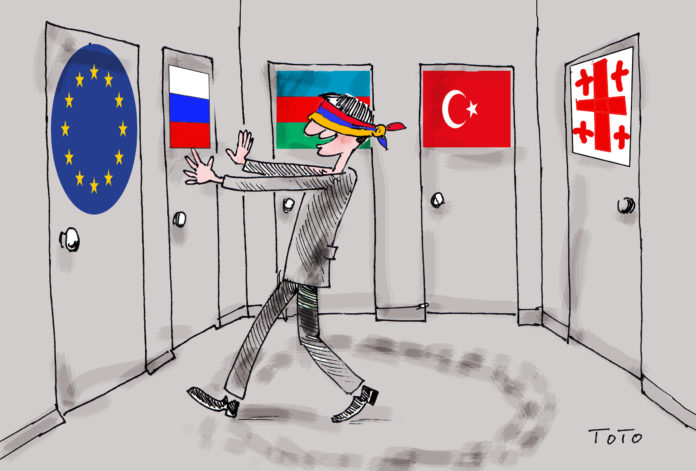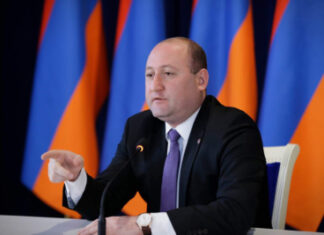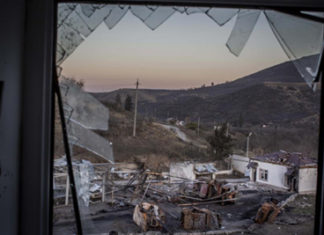In his heyday, Georgia’s former president, Mikheil Saakashvili, made a hostile statement impacting Armenia during an official visit to Baku, the Azeri capital. He said, “Azerbaijan’s enemy is Georgia’s enemy.”
No official retraction has ever been issued by any Georgian representative, at least, none publicly. And yet, that antagonism continues towards Armenia, if not in word, certainly in deed.
Rocky relations between Armenia and Georgia have continued throughout the independence years, mainly because of latent jealousy of Georgians towards Armenians, but also because of Georgian hostility towards Moscow, Armenia’s primary strategic ally.
After Armenia’s Velvet Revolution, Yerevan’s overtures towards Tbilisi yielded nothing but some cosmetic changes. In 2018, the ministers of defense of three countries — Turkey, Azerbaijan and Georgia — signed a military pact as a prelude for Georgia’s ambitions to join NATO. That pact has placed Georgia squarely in the enemy camp. Thus far, that military pact has been kept on the back burner. However, economic cooperation and treaties between the three countries in the Caucasus are equally threatening towards Armenia, as Ankara and Baku intend to isolate Armenia in the region.
Turkey has not abandoned yet its pan-Turanic ambitions, extending from Ankara to Central Asia. There are two Christian nations in that virtual empire’s path: Armenia and Georgia. The latter has willingly given up its historic mission in the region, leaving Armenia to bear the brunt of Azeri President Ilham Aliyev’s and Turkish President Recep Tayyip Erdogan’s fury. Aliyev’s recent outburst against Garegin Nzhdeh’s memory stems from the fact that the Armenian hero fought tooth and nail in 1921 to keep Zangezur as an integral part of Armenian territory, blocking the Turkic drive towards Central Asia. The same resentment was expressed by President Erdogan at a recent conference of Turkish-speaking nations in Baku.
Another milestone was marked in the economic cooperation between the three nations, when the foreign ministers of the three countries met in Tbilisi on December 23 to sign agreements on trade and transportation. The agreements have also a political component which concerns the settlement of outstanding disputes in the region.









